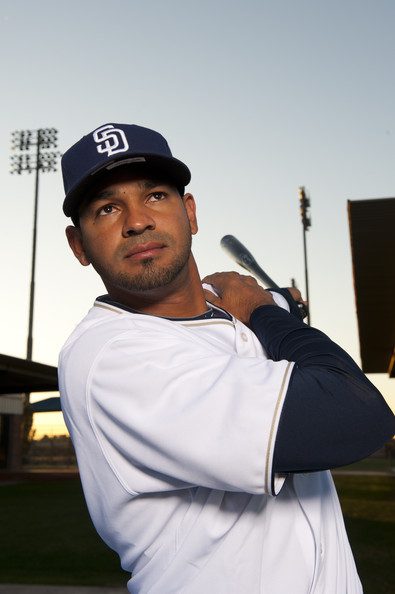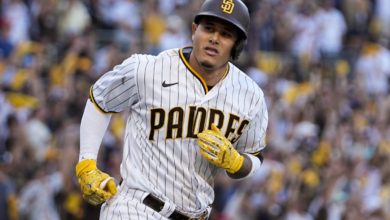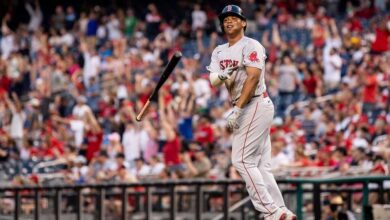

The San Diego Padres have one of the most beautiful recruit facilities in the Dominican Republic. The organization is active in the amateur international free agent market and has signed several veteran Hispanic players to help mold the roster. Yet, the only major league team with a Spanish nickname has been among the fewest to employ Latino players long-term.
For every scheduled home game, hundreds of loyal fans from Tijuana, Mexico, crowd onto the metro trolley for the 30-minute trek from the border to PETCO Park. They come for the love of the game, and not to cheer for favorite players they can call their own. Disappointment still lingers from the exit of Adrian Gonzalez, a home-grown superstar everyone adored, both on and off the field. But even when Adrian was around, there was little Spanish spoken in the clubhouse and even less in the dugout.
It’s not like the Padres haven’t tried to embrace Latino talent. They’ve just been, let’s say, unlucky. Everth Cabrera, star for Mexico in the Caribbean Series last winter, was expected to be San Diego’s opening-day shortstop. But the Nicaraguan youngster has been hampered by injuries and has spent most of the year with triple-A Tucson. Popular Mexican Jorge Cantu was signed in the off season to bolster an anemic offense, but couldn’t hit above the Mendoza line and was released. Desperate for infield help, the Padres even looked to the Mexican League and purchased the contract of veteran Puerto Rican Alex Cintron. Curiously, he refused the assignment and decided to retire.
Fortunately, the Padres young General Manager Jed Hoyer isn’t easily discouraged in his search for economical additions to his team. Back on January, the blossoming executive fans call “Jedi” acquired the services of minor-leaguer free-agent Jesus Guzman in a deal that flew well under the radar. But when the Venezuelan native was called up to the varsity on June 16, all hell broke loose. The promotion came two days after Guzman’s 27th birthday, and National League pitchers weren’t exactly celebrating.
Guzman is the classic example of a quality player who fell through the cracks. Signed as an amateur free-agent by the Seattle Mariners as a 16-year-old, Jesus became a career minor leaguer for three different organizations. In nearly 4,000 turns at the plate, the corner infielder compiled a .302 batting average. A late bloomer, Guzman won the Texas League batting title in 2008, and was MVP of the Venezuela Winter League the following year.
“Jesus could always hit,” noted San Francisco Giants center fielder Andres Torres, who roomed with the young veteran when he had a brief cup of coffee with the team in 2009. “He’s a hard worker who deserved a chance.”
What caught Hoyer’s eye was that Guzman, a right-handed hitter, raked lefty pitching. He was batting .332 overall and .475 against southpaws prior to the promotion, and Padre manager Bud Black reasoned that Jesus would be a good DH candidate during interleague play. As it turned out, he would stick around for good.
In a start at first base against the Giants, his former team, Guzman went yard on a three-run blast against Barry Zito. Then, in an encore performance last week in Miami, he had back to back, four-RBI games against the Florida Marlins.
“I knew Jesus could hit lefties,” said Black. “But I think he’s a pretty good hitter in any situation.”
Hoyer made another move prior to spring training and grabbed Alberto Gonzalez, a slick middle infielder, from the Washington Nationals. That was a heady move as well, since Gonzalez, also from Venezuela, has provided the glue to fill in for error-prone Jason Bartlett and the oft-injured Orlando Hudson. So, together with hard-throwing relief pitcher Ernesto Frieri, a Colombian who was actually drafted by the Padres, Latino aficionados have a trio of South Americans to cheer and support. And most importantly, the team is beginning to shed it’s dubious distinction.
Sure, the Padres are still in last place and probably will remain there for the balance of the season. But the future, on many fronts, is getting brighter. And when those first graduates of the Dominican academy begin to bear fruit, they’ll have a few mentors to show them the way.





